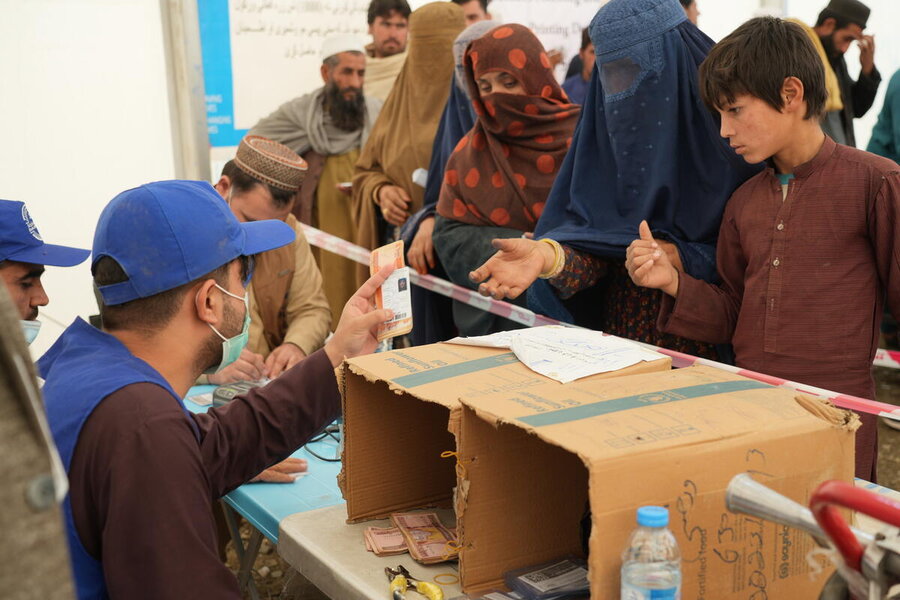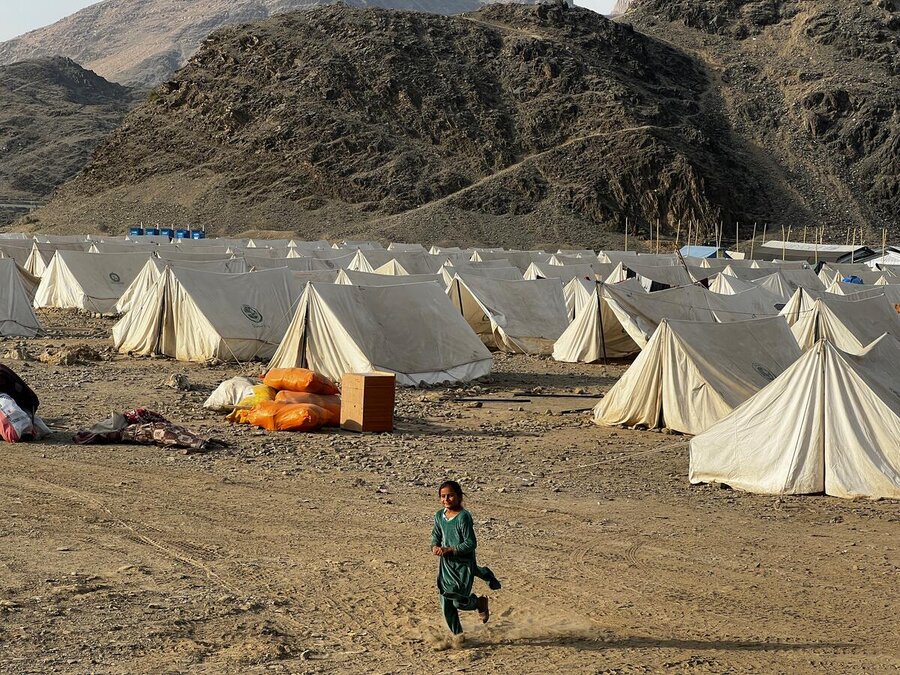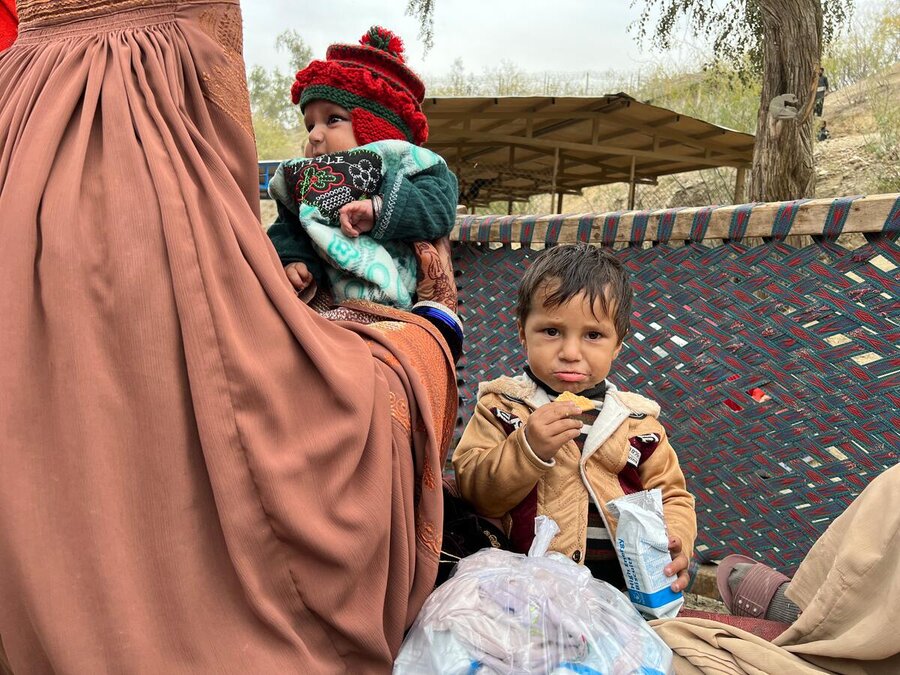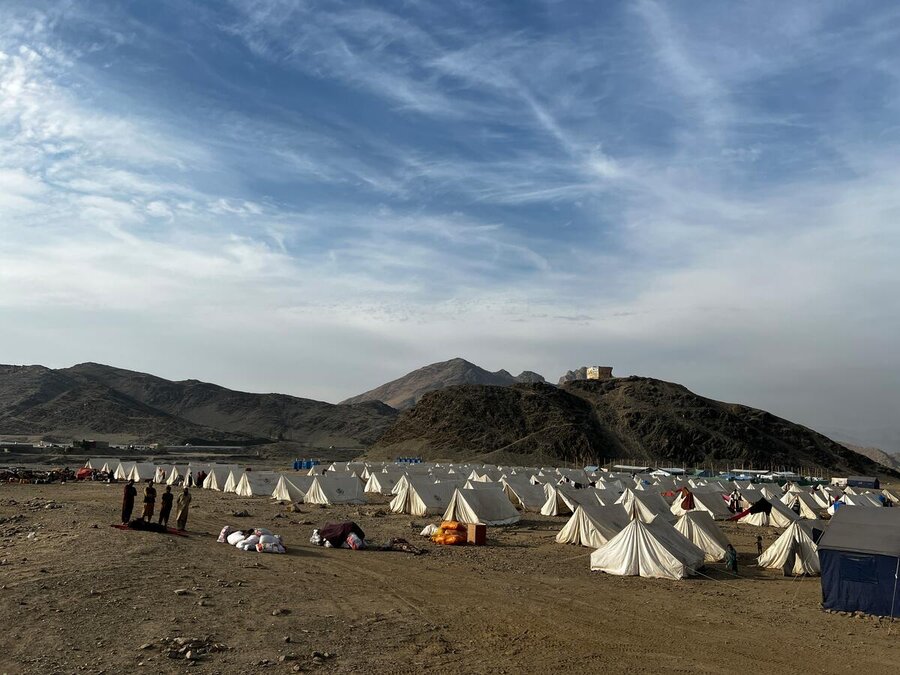
More than 370,000 people have been forced to leave their homes and make their way to Afghanistan since the Government of Pakistan announced in October that all undocumented foreigners would be deported.
We visited Afghanistan's Nangarhar province, where the World Food Programme (WFP) is supplying cash to help families cover their most basic food needs.
WFP is on the ground alongside other UN agencies and NGOs - in a response led by the International Organization for Migration (IOM) - at two border crossings: between Jalalabad in Nangarhar on the road to Peshawar, in Pakistan, and in Kandahar province on the road between Kandahar City and Quetta, across the border.

With over 6 million people already internally displaced throughout Afghanistan, IOM said: "Afghans returning from Pakistan face a precarious, uncertain future."
Mornings at the border are cold. Men wrapped in shawls fill in handfuls of registration forms for the authorities and aid agencies. Returnee families stand in the processing area between the border gate and a tent where children are given polio vaccines.
They enter the first of several warehouse tents. Here people are informed by humanitarian workers about the dangers of unexploded munitions. (After four decades of conflict, Afghanistan has plenty.)
Diary from Gaza: 'There's no time to mourn anyone or anything'

Outside, a WFP truck distributes fortified biscuits - three packs per person in each family. We watch women covered in blue burqas help their children tuck into the cookies.
Aiming to reach his home district 80 km across the border from Pakistan, Mir Alan says he has little to look forward to. "I told my relatives that I have to come back but they told me that they do not have a place for me in the village," he said. "I am sad about the life I left behind and nervous about my future in Afghanistan."
Forced returns come at the worst time for families already struggling to get by. With virtually no possessions and nowhere to go, everyone we spoke to told us they did not know how they would survive the cold months.

It's no wonder families call this season a "countdown to zero". During the long Afghan winter, heavily snow-laden roads can cut off entire communities, placing them out of the reach of humanitarian agencies such as WFP. People collect garbage to burn to stay warm.
Communities across the country count on WFP food assistance to survive as they pace out using what food and resources they have so that they might have a chance to start over again in spring.
But WFP faces a colossal challenge. Funding shortfalls in 2023 forced us to cut emergency food assistance to 10 million people in Afghanistan. We can support only one in five of those who need our support to survive.
All that the returnees have is the cash they receive at the border. Put simply, people are running on empty. In November, WFP supported nearly 280,000 returnees with food and cash. However, this initial critical response came out of an already severely underfunded programme.

Parts of Afghanistan are still reeling from the multiple earthquakes that flattened entire villages in Herat in early October. Resources that would have supported the returnees were instead deployed in the earthquake response.
WFP needs urgent funding to continue its life-saving support to the most vulnerable communities, in a country where disaster follows disaster.
"[We are] already critically underfunded and, without additional funding, we will not be able to continue our support to these families who are arriving at the border with nothing but a few basics and some bread for their journey," said WFP Afghanistan Country Director Hsiao-Wei Lee.
"These families arrive at the worst of times and face a bleak future in a country where one-third of people do not know where their next meal will come from. Leaving behind their homes and livelihoods, they return to start over in a country that gives them few economic opportunities and where many struggle to survive."
WFP urgently needs US$26.3 million to support 1 million returnees from Pakistan arriving in Afghanistan, to help them get through the winter and into the first months of next year.






